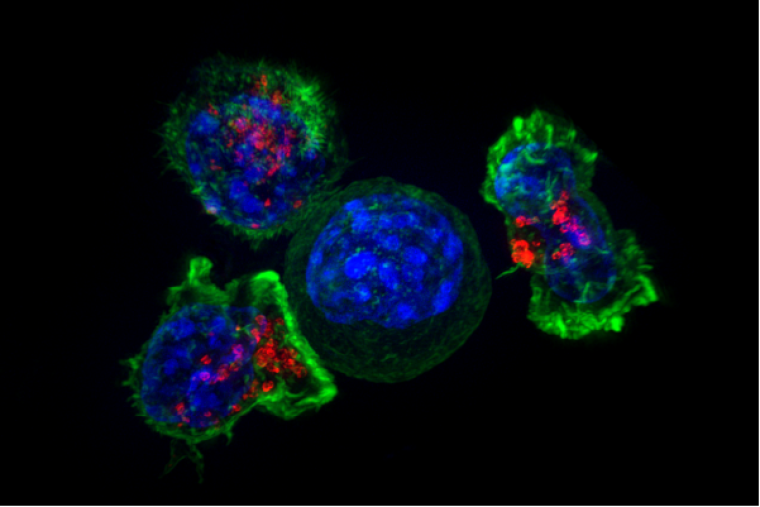Cancer cure news update 2017: Active ingredient in chilies could hold key to beat cancer

An active ingredient in chilies may hold the key to finally conquering breast cancer.
As reported by Metro, scientists at the Ruhr University in Bochum, Germany claim that capsaicin, an ingredient known to give the spice its trademark kick, can actually cause cancer-stricken cells to self-destruct.
According to the report of the Bochum-based research team, capsaicin inhibits the growth of breast cancer cells. They published their findings in the journal, "Breast Cancer – Targets and Therapy," and presented it together with colleagues from the Augusta clinics in Bochum, the hospital Herz-Jesu-Krankenhaus Dernbach, and the Centre of Genomics in Cologne.
The experiments were carried out using the SUM149PT cell culture, a model system for a triple-negative type of breast cancer. For a type of cancer this aggressive, chemotherapy is currently the only available treatment.
Their experiments allegedly demonstrated how capsaicin attaches itself to the cell membrane when it reaches a cancer cell and subsequently activates a cell receptor called TRPV1. This receptor controls which substances (such as calcium and sodium) are allowed to enter and exit the cancer cell.
When researchers activated the TRPV1 receptor in the cell culture by adding capsaicin for a period of several hours or days, the cancer cells reportedly divided more slowly. Moreover, the surviving cells were not able to move as quickly as before, which implies that their ability to metastasize in the body has been impeded.
"If we could switch on the TRPV1 receptor with specific drugs, this might constitute a new treatment approach for this type of cancer," lead researcher Prof. Hanns Hatt said.
However, their report stressed that intake of the substance via food or inhalation is insufficient for the purpose of treating cancer.
Aside from breast cancer, this new discovery shows a lot of promise in treating other types of cancer such as osteosarcoma, colon, and pancreatic cancer, while keeping normal cells unharmed.
 Christians don't have to affirm transgenderism, but they can’t express that view at work: tribunal
Christians don't have to affirm transgenderism, but they can’t express that view at work: tribunal Archaeology discovery: Medieval Christian prayer beads found on Holy Island
Archaeology discovery: Medieval Christian prayer beads found on Holy Island Presbyterian Church in America votes to leave National Association of Evangelicals
Presbyterian Church in America votes to leave National Association of Evangelicals Over 50 killed in 'vile and satanic' attack at Nigerian church on Pentecost Sunday
Over 50 killed in 'vile and satanic' attack at Nigerian church on Pentecost Sunday Ukrainian Orthodox Church severs ties with Moscow over Patriarch Kirill's support for Putin's war
Ukrainian Orthodox Church severs ties with Moscow over Patriarch Kirill's support for Putin's war Islamic State kills 20 Nigerian Christians as revenge for US airstrike
Islamic State kills 20 Nigerian Christians as revenge for US airstrike Man who served 33 years in prison for murder leads inmates to Christ
Man who served 33 years in prison for murder leads inmates to Christ


 Nigerian student beaten to death, body burned over ‘blasphemous’ WhatsApp message
Nigerian student beaten to death, body burned over ‘blasphemous’ WhatsApp message 'A new low': World reacts after Hong Kong arrests 90-year-old Cardinal Joseph Zen
'A new low': World reacts after Hong Kong arrests 90-year-old Cardinal Joseph Zen Iran sentences Christian man to 10 years in prison for hosting house church worship gathering
Iran sentences Christian man to 10 years in prison for hosting house church worship gathering French Guyana: Pastor shot dead, church set on fire after meeting delegation of Evangelicals
French Guyana: Pastor shot dead, church set on fire after meeting delegation of Evangelicals ‘Talking Jesus’ report finds only 6% of UK adults identify as practicing Christians
‘Talking Jesus’ report finds only 6% of UK adults identify as practicing Christians Mission Eurasia ministry center blown up in Ukraine, hundreds of Bibles destroyed: 'God will provide'
Mission Eurasia ministry center blown up in Ukraine, hundreds of Bibles destroyed: 'God will provide' Church holds service for first time after ISIS desecrated it 8 years ago
Church holds service for first time after ISIS desecrated it 8 years ago Burger King apologizes for 'offensive campaign' using Jesus' words at the Last Supper
Burger King apologizes for 'offensive campaign' using Jesus' words at the Last Supper Uganda: Muslims abduct teacher, burn him inside mosque for praying in Christ’s name
Uganda: Muslims abduct teacher, burn him inside mosque for praying in Christ’s name